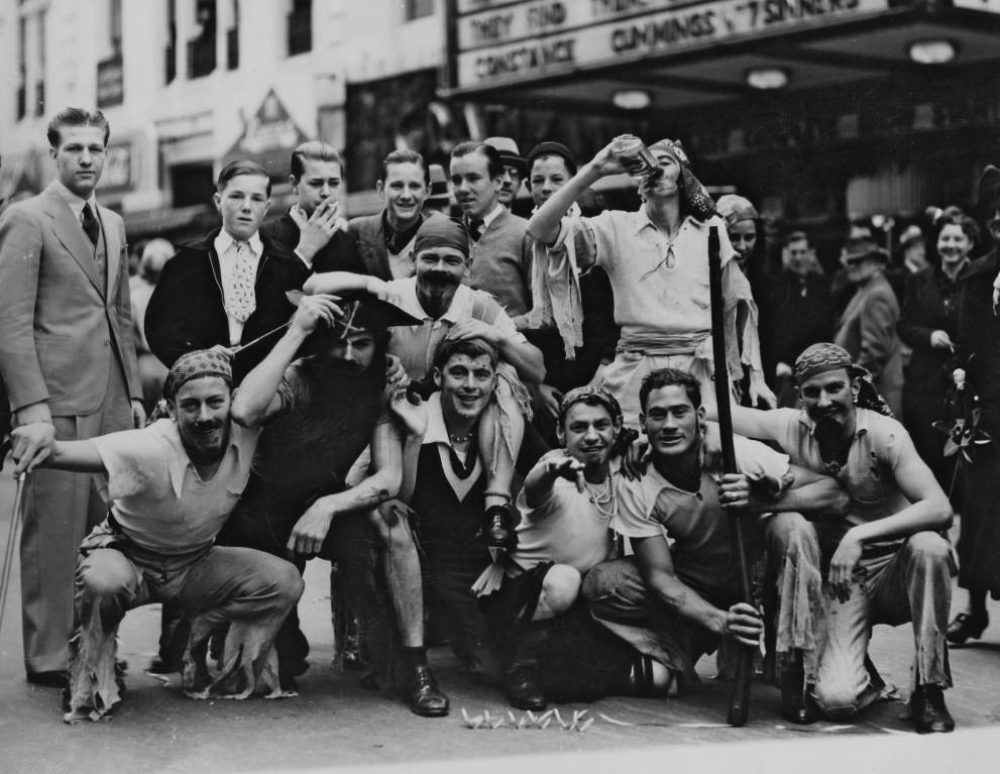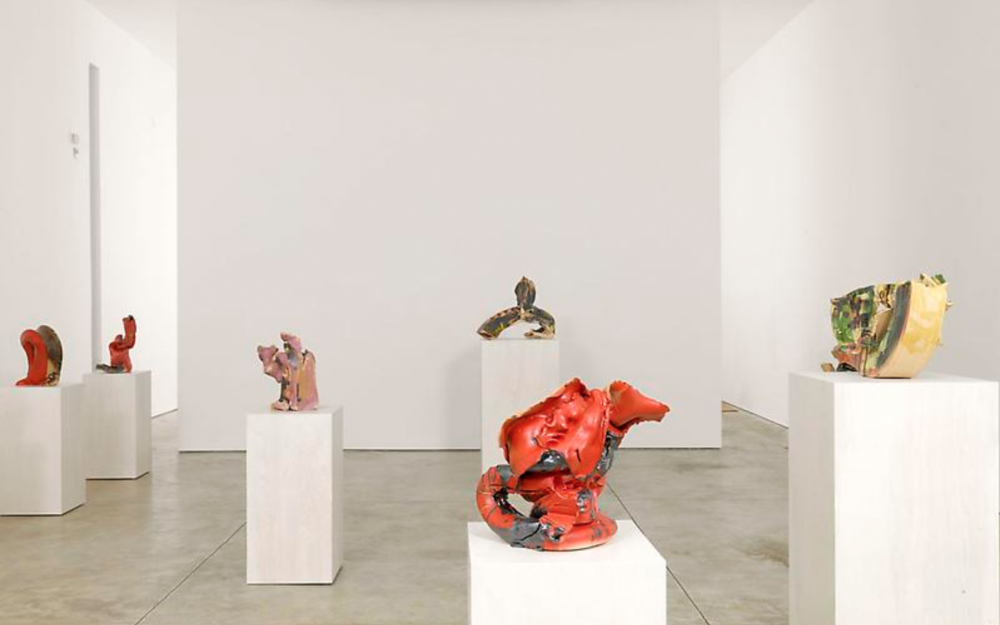Pacing Yourself
It’s no secret that New Orleans loves to party. Benjamin Morris thinks about how we’ve learned to celebrate all year round.

Mardi Gras in New Orleans, c. 1930s. Image via Wikimedia Commons.
Parties. We throw them and we go to them. We plan them and we pan them. We brave them and (sometimes) we escape them. Here in Louisiana, they are as much a part of our way of life as the water we drink and the air we breathe; one of them in particular has made our state famous across the world. In short, we cannot live without them—if we could, we’d live somewhere else.
Perhaps more than any other people in the country, Louisianans possess an exceptionally keen interest in partying, due in part to the state’s southern European heritage: the obsession with bon vivance alongside the regular Catholic observance of feast days. As jubilant partying is rooted in Christian tradition—after all, in the wedding at Cana, Jesus didn’t change 180 gallons of water into mere Welch’s, for a party that had already been raging for a week—such a habit has strong early roots in this area. Over time, with the mingling of Latin, Caribbean, and African influences, and the regular inclusion of music into festivities, as Freddi W. Evans has written about in her history of Congo Square, the art of partying has grown to encompass a central part of our contemporary way of life.
Indeed, nowadays, the genres of parties here in Louisiana can seem endless. A brief list includes: holidays, national and cultural. Tailgate, during football season. The end of hurricane season, the beginning of Epiphany. Second lines both with and without funerals, and Social Aid and Pleasure Clubs throwing parties in the streets. Album releases and book launches, feast days such as Reveillon and St. Joseph’s, and secular markers alongside them such as Juneteenth and Super Sunday, one of the few days of the year when Mardi Gras Indians mask in full suits. Throw in music and food festivals from April to September, and scarce is the month without some major celebration; scarcer still the month when one is not actively anticipating the next—a feature of our cultural lives locally, like debating where to go for dinner while still eating lunch.
And, of course, the big one, a citywide party that lasts over a month, and shuts down streets and schools and businesses with its power. While the many genres of Mardi Gras parties deserve their own exploration in full, a rough taxonomy would include four main types, arranged from the informal to the formal: first are house parties, celebrations with family or friends, often leaving the door open for stragglers and strangers alike. Second are costume parties, wherein members of one’s krewe, dance troupe, or Indian gang meet for weeks or months at a time to design outfits for the grand event. Third, parties for newer krewes such as Apocalypse, Chewbacchus, or the M.O.M.’s Ball, larger events whose main requirement for admission is a costume. And fourth, the lavish balls of old-line krewes such as Rex, Zulu, and Endymion, reserved strictly for members and guests, and occupying such venues as the Convention Center or the Superdome.
To outsiders, such revelry may seem wasteful, even immoral, perpetuating the notion of locals as drunken, indolent layabouts, people who work only to support their habits and who cannot wake up in the morning without reaching for their next fix, in whatever form it’s delivered—a glass, a needle, or a zipper. Such notions doubtless informed the jeremiads from distant senators after Hurricane Katrina that the city should not be rebuilt, and fed the impressions by former First Ladies that “those people” were “better off” displaced from their homes and scattered to cities across America. Such notions almost certainly belong to those who have never been here, content to nurse their smug presumptions from afar.
If only it were true. Indeed, with rare exception, when it comes to revelry, every New Orleanian I know holds to a single rule, a rule that spans age, gender, race, creed, and vice of choice: pace yourself. A perfect modern articulation of the Apostle Paul’s exhortation to “moderation in all things,” the beauty of the rule is that it presumes first and foremost that the party one is currently attending shows no signs of stopping: not tonight, not by Monday morning, not ever. While the axioms from athletics are apt—life here is indeed a marathon of engagement with the city’s culture, not a sprint—the connotations from music are even more poetic. The song lasts longer than you think, so slow down, enjoy the dance, take your time. If you’re here for the long haul, don’t flame out after only the second drink or the third song.
That said, it is also true that the other element of our desire to party stems from the inverse impulse: the desire to live intently, alert to every opportunity for joy, an intensity born from the embrace of our own mortality. Like the hug of your hostess at the door, that acceptance is the price that every local resident pays to live here, as we have for the nearly three hundred years since our founding. As geographers, historians, and travelers have long observed, if the heat and the humidity won’t kill you, the disease, the hurricanes, and the floods will. Even if cholera may have nowadays given way to gun violence, we live here despite the risks, with the very fragility of our social and cultural fabric driving our constant celebration of it. We know too well how swiftly what—and whom—we love can be taken away from us, and even ten years on after one attempt in particular, much of our artistic expression remains a potent reminder of that fact.
After all, the lesson of our recent history here in coastal Louisiana is that each new day that we wake up here is a victory in itself, a victory shared with others, and a victory worth celebrating over and over—precisely because it so often comes so perilously close to proving otherwise. With another Carnival season now transcended into memory, be sure to cherish the creativity and the artistry of our culture, but consider raising your glass as well to that sobering fact. Even during Lent, more festivals are just around the corner, so remember: pace yourself. Have the time of your life. And be sure to call a cab to take you home.



